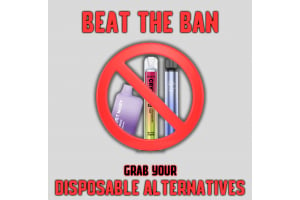Excessive regulation could kill off one of the most remarkable public health phenomenon in history
We’ve been conditioned to automatically believe what authority figures tell us – so what happens when what they are saying is, well, just plain wrong? Cigarettes, alcohol, drugs – they’re all carefully regulated, and for good health reasons based on sound evidence to protect us from the harmful effects of their abuse or misuse. But, the conflicting information on e-cigarettes coming from those in supposedly high places is simply bemusing!
WHO to look to for advice?
The World Health Organization (WHO) is the authority everyone on the globe looks to for advice and information on Ebola outbreaks, obesity rates and issues related to our well-being. So how can they get e-cigarettes so wrong? We reported a few weeks ago that WHO had produced a report in which they had recommended the banning of electronic cigarettes in work and public places and called for greater regulation. However, almost immediately, scientists from various renowned institutions pointed out that this reasoning was based on a fundamental misinterpretation of the statistics presented to WHO.
Where to look for trusted information?
Newspapers and news media reach millions of people across the country every day. And, though some are more comic book than authority source, they all have influence, which is why it is troubling when scaremongering headlines obsess over incorrect or inaccurate information. Remember that news media has a ‘story’ to sell, and for many this is done through sensationalising the facts. Therefore, for a more accurate view of e-cigarettes it’s always best to look to scientific publications and the scientists who have actually been doing the research on them. The journal ‘Addiction’ is one of the best.
The ultimate authority?
The EU provides us with many of our laws and, though most are sensible, we are occasionally faced with the odd stinker – can anyone remember the EU’s apparent ban on bent bananas, suggesting that those bananas with excessive curvature could no longer be sold? Well, Brussels is at it again with their regulation of e-cigarettes, due to come into force in 2016, which places a whole raft of restrictions in the way of manufacturers, retailers and vapers and could well cripple the industry.
The other side of the story
If you rely on news media, the EU or WHO for your information you may be surprised to learn that e-cigarettes:
- Have helped approximately 700,000 people in the UK to quit tobacco cigarettes.
- Could save tens of thousands of lives in Britain alone.
- Vapour contains only ingredients considered safe by the US Food and Drug Administration.
- Are supported by many leading scientists as our best hope for reducing smoking-related premature deaths and helping smokers to quit.
- Can cost a small fraction of the expense of a smoking habit.
The UK has 2.1 million vapers, and of them it is estimated that a third no longer smoke cigarettes. That’s a massive win by anyone’s standards as it’s the incineration of tobacco in cigarettes that results in thousands of toxins being released into your body. So even if you are vaping using e-liquids containing the same level as nicotine as you used to consume through cigarettes you are choosing the healthier option – the option that will most likely lengthen your life expectancy. It is estimated that a billion lives will be cut short by smoking-related deaths within the 21st century if current trends are to be believed, so why has the EU decided to restrict the most successful quitting solution of all time?
To regulate or not to regulate?
We agree that quality standards should be monitored and maintained to make sure that customer confidence in vaping remains high, and we also agree that e-cigarette sales to under 18s should be banned, but new EU regulations due to come into force in May 2016 take things far too far.
The EU’s revised Tobacco Products Directive bans advertising, requires 30% of the packaging to be covered in health warnings, limits e-liquid container sizes, and requires e-cigarettes containing higher concentrations of nicotine to be available only over the counter. These regulations are designed to restrict awareness and make it more difficult for those who could benefit most from quitting to have access to their best hope for doing so. Unfortunately, these decisions were made behind closed doors and without consulting all relevant experts in the field so their reasoning is sketchy at best.
Though such strict regulations may put off some people and organisations, our hope is that if 2.1 million vapers in the UK have already ignored the anti-vaping propaganda to turn to e-cigarettes then maybe regulation will just strengthen their resolve. After all, with no government investment and hundreds of thousands of ex-smokers to show for its short time in the UK, the e-cigarette industry could well be the most remarkable public health phenomenon in history.
















